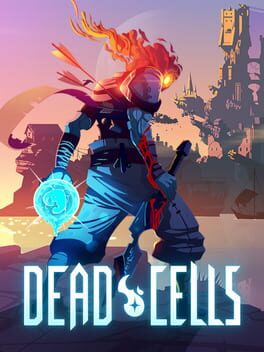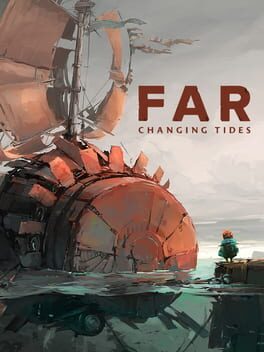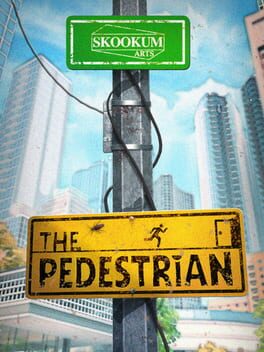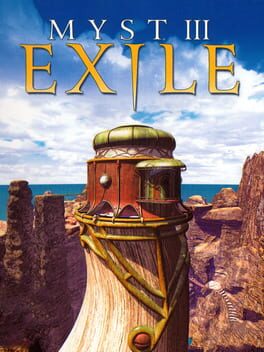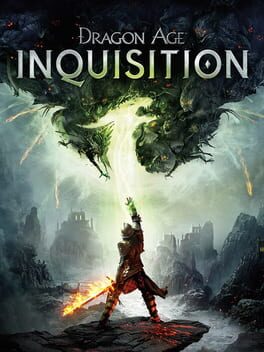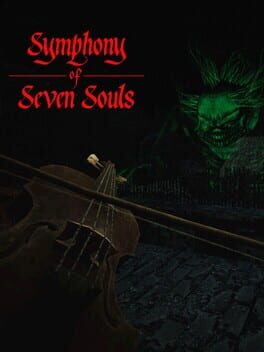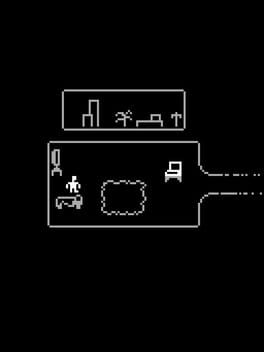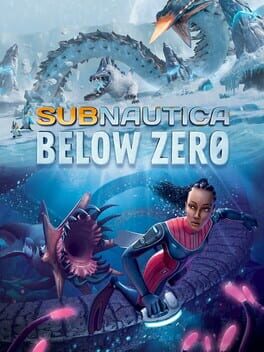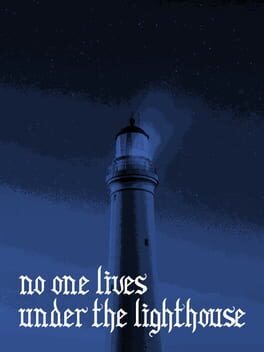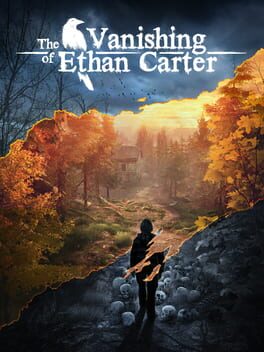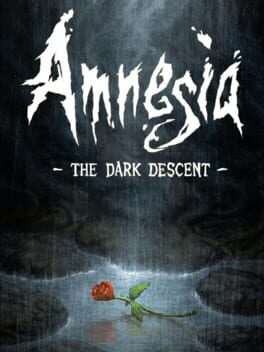hawkjones
2017
2022
Probably best thought of as "part 2" rather than a sequel. Doesn't really introduce any new themes or perspectives, but does preserve the charm of the first game. However, the landscapes, while mostly empty, feel unfinished rather than desolate. Desolation requires points of reference (buildings, plants, etc.) so that we understand how empty a place is via comparison. This has some, but not enough. The first few minutes were good– the arctic sequence was terrible. Can be finished in just a few hours, so worth your time if you liked the world of the first game.
2020
2001
Myst 3 can't be the first identifiably positivist video game ever made, but it's probably the first one that I've played. It proposes that the world we live in and the lives we lead are a puzzle– not only that constituent parts are interconnected, but also that problems are solvable. The universe as linear algebra (cf. a game like Pathologic or Pentiment, where there are ultimately no "good" answers).
Now, this proposition could have been easily and utterly ham-fisted if the entire game was comprised of ages like the Rube Goldbergian Amateria, where logic materializes in the form of machines that guide spheres on tracks. But Exile redeems itself through the age of Edanna, where an island's entire ecosystem becomes a puzzle to manipulate and solve. Clearly the abstract notion of a machine is being applied more broadly and in contentious ways.
While this nevertheless is in line with the suggestion that the universe is inherently knowable - that scientific and logical proofs can be used to explain reality - it is of course at odds with the mystical, creative process of The Art, which allows ages to be created through writing linking books. The Myst series up to this point never really explains how The Art functions. There is a sequence in the last part of Exile that comes very close, hewing close to its positivist inclinations, but it never really gets close to becoming fully expository.
So where does that leave us? People are only truly creative within limitations? Creativity is limited by the laws of reality? That creativity and logic are inextricably intertwined? The full weight of these questions are best understood by playing all three games up to this point, but Exile really ties the bow on it.
Now, this proposition could have been easily and utterly ham-fisted if the entire game was comprised of ages like the Rube Goldbergian Amateria, where logic materializes in the form of machines that guide spheres on tracks. But Exile redeems itself through the age of Edanna, where an island's entire ecosystem becomes a puzzle to manipulate and solve. Clearly the abstract notion of a machine is being applied more broadly and in contentious ways.
While this nevertheless is in line with the suggestion that the universe is inherently knowable - that scientific and logical proofs can be used to explain reality - it is of course at odds with the mystical, creative process of The Art, which allows ages to be created through writing linking books. The Myst series up to this point never really explains how The Art functions. There is a sequence in the last part of Exile that comes very close, hewing close to its positivist inclinations, but it never really gets close to becoming fully expository.
So where does that leave us? People are only truly creative within limitations? Creativity is limited by the laws of reality? That creativity and logic are inextricably intertwined? The full weight of these questions are best understood by playing all three games up to this point, but Exile really ties the bow on it.
I will be the first to admit that I'm a bit of a sucker for sword and sorcery fantasy settings. If you want me to forgive - even enjoy - some of your most hackneyed tropes and mechanics, simply make them ~Tolkienesque~. Space marines fighting alien hordes? Derivative. Pathetic. An elf gathering enchanted herbs in a forest? Hell yes brother I am there. But even despite this predilection, 40 hours of DAI has left me unable to be compelled by... almost anything in the game.
This is an unusual experience for me, so I set about trying to diagnose the malaise. An easy answer might be the music: relatively sparse, and what's there is mostly generic Dorian scale fantasy orchestra. Not a mortal sin by any means, but its contributions to the game are fairly negligible.
The story, combat, lore, and environments can all be characterized similarly. The environments especially: layouts of most settlements are organized in such a manner that walking from one point to another requires a Family Circus-esque traversal of ramps and stairs. My guess is that the designers wanted to give the impression that each location is rich in histories that get reflected in their layout (like Brazilian favelas maybe [?]), but it ends up feeling like they plopped "Medieval Town – Free Pack 2" assets down onto a map and forgot to rotate them. They are missing the spatial logic that exists in actual lived-in towns. If Redcliffe existed in real life it would be littered with desire paths.
But I believe the real problem is that there's nothing that I can identify in DAI as distinctly "Dragon Age" aside from, of course, the dialogue system and cutscenes with people casually drenched in blood. Peer S&S games – Skyrim, The Witcher, D: OS 2, possibly even Pillars of Eternity, World of Warcraft, Trine, etc. – all have distinctive thematic and stylistic leitmotifs, despite using settings that are otherwise fairly off-the-shelf, or at least highly referential. In DAI, the designs of the character and codex cards are probably one of the best parts of the entire game and could have been expanded into something truly interesting– perhaps the story is told through cards, similar to a tarot deck, invoking questions of fate, storytelling, and tropes/archetypes themselves. Instead, the cards relegated entirely to being a neat design element. So while countless pieces of media have been described as "like Skyrim" over the past 11 years, I can't imagine what would make me say that something is "like Dragon Age" besides, perhaps, a beta version of a fantasy MMO.
Does this make it a bad game? No. I can imagine returning to this for something predictable and not very challenging. And lots of people seem to be heavily invested in the relationships between characters, for what that's worth. But I did feel like I was playing through the whiteboard brainstorming sessions for other games. With the budget and cachet available to them, this should have been a very different game.
This is an unusual experience for me, so I set about trying to diagnose the malaise. An easy answer might be the music: relatively sparse, and what's there is mostly generic Dorian scale fantasy orchestra. Not a mortal sin by any means, but its contributions to the game are fairly negligible.
The story, combat, lore, and environments can all be characterized similarly. The environments especially: layouts of most settlements are organized in such a manner that walking from one point to another requires a Family Circus-esque traversal of ramps and stairs. My guess is that the designers wanted to give the impression that each location is rich in histories that get reflected in their layout (like Brazilian favelas maybe [?]), but it ends up feeling like they plopped "Medieval Town – Free Pack 2" assets down onto a map and forgot to rotate them. They are missing the spatial logic that exists in actual lived-in towns. If Redcliffe existed in real life it would be littered with desire paths.
But I believe the real problem is that there's nothing that I can identify in DAI as distinctly "Dragon Age" aside from, of course, the dialogue system and cutscenes with people casually drenched in blood. Peer S&S games – Skyrim, The Witcher, D: OS 2, possibly even Pillars of Eternity, World of Warcraft, Trine, etc. – all have distinctive thematic and stylistic leitmotifs, despite using settings that are otherwise fairly off-the-shelf, or at least highly referential. In DAI, the designs of the character and codex cards are probably one of the best parts of the entire game and could have been expanded into something truly interesting– perhaps the story is told through cards, similar to a tarot deck, invoking questions of fate, storytelling, and tropes/archetypes themselves. Instead, the cards relegated entirely to being a neat design element. So while countless pieces of media have been described as "like Skyrim" over the past 11 years, I can't imagine what would make me say that something is "like Dragon Age" besides, perhaps, a beta version of a fantasy MMO.
Does this make it a bad game? No. I can imagine returning to this for something predictable and not very challenging. And lots of people seem to be heavily invested in the relationships between characters, for what that's worth. But I did feel like I was playing through the whiteboard brainstorming sessions for other games. With the budget and cachet available to them, this should have been a very different game.
Day 873: probably one of the only times that a "lack" of "gameplay" actually enriches the final product. The promise of a video game – movement, exploration, achievement – is denied almost entirely. Conventional indicators of progress have been reduced to essentially superficial changes, your group chat being the most dynamic thing that you can interact with (such as it is) in the room.
Probably more interesting as a commentary on video games than on world events, but I did enjoy it in that light.
Probably more interesting as a commentary on video games than on world events, but I did enjoy it in that light.
The magic of the first game arose mostly from the process of discovery. It had only the barest threads of a story for the first several hours, and the player's time was spent primarily building, surviving, and learning about the planet itself while occasionally being directed to crash sites and the ruins of former outposts. It's clear that the planet had a history, but nothing appeared to be truly fishy (heuheu) for quite some time, and even once that threshold was crossed, the manner in which it took place made it obvious that the forces you had to deal with were far more immense than you were able to fully comprehend. So instead, you really just continued to focus on exploration of the planet, and your environment came to reflect the spoils of that exploration, which in turn helped you progress through what story there was. Gameplay dealing with traversing immensity, themes reflected in story. Good. Tight.
Well, BZ focuses on delving further into the aforementioned forces, which quickly lose their sense of scale by way of exposition. Tangential narratives are also given more attention, such as the relationships between Alterra scientists. Maybe people like that stuff? I dunno, I was bored. Exploration is still there and narrative progression is still technically gated by discovery, but the gates feel more arbitrary. Endgame rewards are weak compared to the first game.
If I was going to make a larger cultural critique, I'd probably say that this type of narrative accretion in a series/franchise - where more stories are told in the interest of enlarging a "universe" rather than supporting a primary set of rhetorical themes - is symptomatic of the utterly dominant Ubisoft/Marvel/Disney model of Producing Content™, but I won't die on that hill.
The gameplay loop is basically identical to the first game which is that kept me going through to the credits. I appreciated the addition of glass roofs. The fish designs are still mostly good, although the austerity of an arctic environment was occasionally underwhelming compared to the lush shallows of game 1. Snow-based exploration I tried to avoid for the most part.
Worth getting on sale.
Well, BZ focuses on delving further into the aforementioned forces, which quickly lose their sense of scale by way of exposition. Tangential narratives are also given more attention, such as the relationships between Alterra scientists. Maybe people like that stuff? I dunno, I was bored. Exploration is still there and narrative progression is still technically gated by discovery, but the gates feel more arbitrary. Endgame rewards are weak compared to the first game.
If I was going to make a larger cultural critique, I'd probably say that this type of narrative accretion in a series/franchise - where more stories are told in the interest of enlarging a "universe" rather than supporting a primary set of rhetorical themes - is symptomatic of the utterly dominant Ubisoft/Marvel/Disney model of Producing Content™, but I won't die on that hill.
The gameplay loop is basically identical to the first game which is that kept me going through to the credits. I appreciated the addition of glass roofs. The fish designs are still mostly good, although the austerity of an arctic environment was occasionally underwhelming compared to the lush shallows of game 1. Snow-based exploration I tried to avoid for the most part.
Worth getting on sale.
2022
2019
2020
